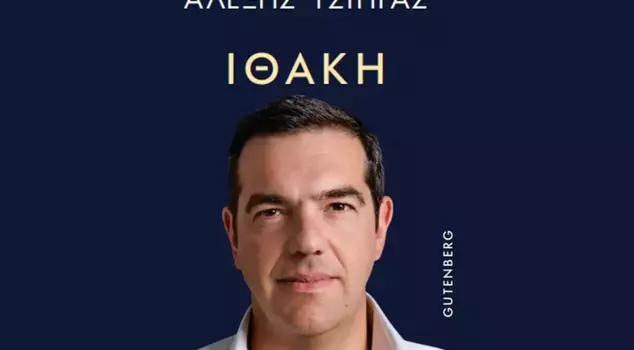
26.11.2025 23:40
Former Greek Prime Minister Alexis Tsipras addressed Turkey-Greece relations during his term in his book, which was released this week. Tsipras emphasized that the July 15 coup attempt harmed the relationship between the two countries, and he recounted that during that time, President Erdoğan called him to request the extradition of FETÖ members. He stated that in response to this request, he told Erdoğan that "the coup plotters are not welcomed in Greece, but the decision on extradition belongs to the Greek judiciary."
Former Greek Prime Minister Alexis Tsipras, in his book titled "Ithaki," which was released this week, recounted his days as Prime Minister from 2015 to 2019. The book, which focuses more on domestic politics and the economic crisis, also touches upon relations with Turkey in its section on international relations.
TURNING POINT IN TURKISH-GREEK RELATIONS: JULY 15
Tsipras stated that the Turkish-Greek relations during his term could be examined in two parts: before and after the July 15 coup attempt. He noted that Greece needed a multifaceted foreign policy due to the economic crisis it was experiencing at that time and therefore placed importance on relations with global and regional actors, emphasizing that a positive agenda prevailed in relations with Turkey before July 15, 2016.
3 VISITS IN 7 MONTHS
The former leader of Greece pointed out that despite all the issues in relations, he was a Greek Prime Minister who visited Turkey three times in seven months, stating, "I believe that if the coup attempt that occurred in July of the same year had not intervened, the 4th High-Level Cooperation Council (HLCC) held in Izmir in March 2016 could have been an important turning point in Turkish-Greek relations."
Tsipras recounted that he received the news of the coup attempt in Turkey while on vacation with his family for the first time during his tenure as Prime Minister in the economic crisis, and he was one of the first to express his support to President Recep Tayyip Erdoğan against the coup attempt by calling him afterward.
"GREEK JUDICIARY MUST DECIDE" RESPONSE
Tsipras emphasized that he received the news regarding the 8 fugitive FETÖ members who fled to Greece's Alexandroupoli by military helicopter from the then Minister of Defense Panos Kammenos, arguing that they had to examine the asylum requests of the fugitive FETÖ members due to international law and humanitarian responsibilities.
He explained that the next day, President Erdoğan called him and requested the extradition of the FETÖ members, stating that "the coup plotters are not welcomed in Greece, but the Greek judiciary must decide."
2 YEARS OF TENSION
Tsipras remarked, "This issue of the 8 individuals constituted a constant problem in Turkish-Greek relations for at least 2 years." He claimed that Turkey hardened its stance against Greece after these events and expressed that the issue regarding the 8 fugitive FETÖ members never left the agenda.
FIRST PRESIDENT TO VISIT GREECE IN 65 YEARS
In his book, Tsipras recalled that Erdoğan was the first Turkish President to visit Greece after 65 years in 2017, stating, "Whatever agreements we could not reach behind closed doors, we brought them to light in front of the cameras at the joint press conference."
Referring to criticisms that "the tension experienced at the press conference further increased the tension in Turkish-Greek relations," Tsipras noted, "In my opinion, it was beneficial. I think it is better for a neighbor to directly state what they believe than for others to say it."
Tsipras also shared his views on the Turkish minority in Western Thrace, expressing his belief that democratic arrangements that would correct the serious mistakes of the past would strengthen the rights of the minority, the principle of equal citizenship, and social unity, and that all governments in the country should bear this responsibility.
He mentioned that his government had raised the idea of gradually increasing Greece's territorial waters starting from the Ionian Sea, but his political rival at the time, the current Prime Minister Kyriakos Mitsotakis, opposed the idea on the grounds that such an implementation would mean accepting Turkey's claims. Tsipras noted that despite this, Mitsotakis pursued the path of extending the territorial waters in the Ionian Sea from 6 miles to 12 miles when he came to power.